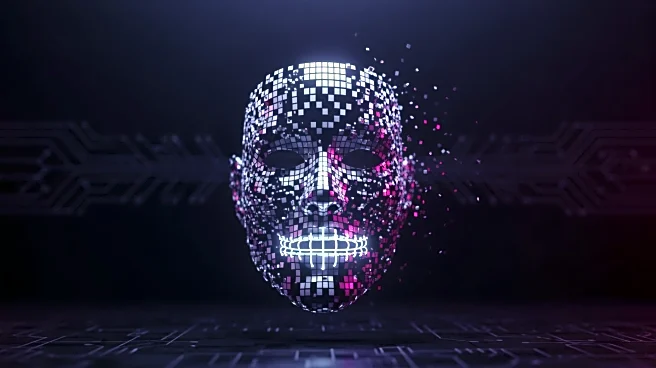What's Happening?
Generative AI tools are increasingly being used to create fake endorsements and scams involving celebrity likenesses. A report from McAfee highlights that 72% of Americans have encountered fake celebrity endorsements online,
with Taylor Swift being the most impersonated. Other celebrities frequently used in scams include Scarlett Johansson, Jenna Ortega, and Sydney Sweeney. These scams often involve fake crypto endorsements and merchandise, exploiting the popularity of these figures to deceive consumers. McAfee reports that 39% of people have clicked on these false endorsements, with 10% risking personal information and losing an average of $525. The AI-generated content can be identified by inspecting for signs such as disappearing objects, shiny appearances, and watermarks.
Why It's Important?
The rise of AI-generated scams poses significant risks to consumers, who may inadvertently share personal information or lose money. The use of celebrity likenesses in these scams leverages public trust and interest, making them particularly effective. This trend underscores the need for improved digital literacy among consumers to recognize and avoid such scams. Additionally, it highlights the challenges faced by AI companies in preventing misuse of their technologies. The broader implications include potential damage to celebrity reputations and increased pressure on social media platforms to implement effective AI content labeling and verification systems.
What's Next?
Efforts to combat AI-generated scams are likely to intensify, with AI companies working to refine their models to prevent unauthorized use of celebrity likenesses. Social media platforms may enhance their AI content labeling systems to better inform users. Legal and regulatory measures could be considered to address the misuse of AI technologies in creating deceptive content. Consumers are advised to remain vigilant and informed about the signs of AI-generated scams to protect their personal information and finances.
Beyond the Headlines
The ethical implications of using AI to impersonate individuals raise concerns about privacy and consent. As AI technology advances, the potential for misuse increases, necessitating discussions on the ethical boundaries of AI-generated content. The cultural impact of these scams may also affect public trust in digital content and celebrity endorsements, prompting a reevaluation of how authenticity is perceived in the digital age.









